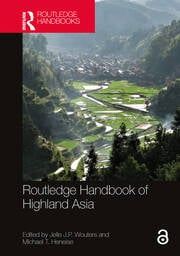
The Routledge Handbook of Highland Asia is the first comprehensive and critical overview of the ethnographic and anthropological work in Highland Asia over the past half a century. Opening up a grand new space for critical engagement, the handbook presents Highland Asia as a world-region that cuts across the traditional divides inherited from colonial and Cold War area divisions - the Indian Subcontinent/South Asia, Southeast Asia, China/East Asia, and Central Asia.
Thirty-two chapters assess the history of research, identify ethnographic trends, and evaluate a range of analytical themes that developed in particular settings of Highland Asia. They cover varied landscapes and communities, from Kyrgyzstan to India, from Bhutan to Vietnam and bring local voices and narratives relating trade and tribute, ritual and resistance, pilgrimage and prophecy, modernity and marginalization, capital and cosmos to the fore. The handbook shows that for millennia, Highland Asians have connected far-flung regions through movements of peoples, goods and ideas, and at all times have been the enactors, repositories, and mediators of world-historical processes. Taken together, the contributors and chapters subvert dominant lowland narratives by privileging primarily highland vantages that reveal Highland Asia as an ecumune and prism that refracts and generates global history, social theory, and human imagination. In the currently unfolding Asian Century, this compels us to reorient and re-envision Highland Asia, in ethnography, in theory, and in the connections between this world-region, made of hills, highlands and mountains, and a planetary context.
Edited by: Jelle J.P. Wouters and Michael T. Heneise
Learn More

